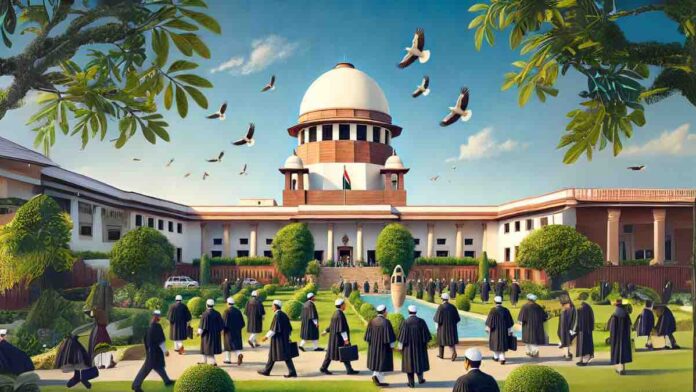The Supreme Court has quashed a Bombay High Court order and directed the issuance of a Scheduled Tribe Caste Validity Certificate to a medical aspirant, holding that his pre-Independence school record showing his grandfather’s caste as “Koli Mahadev” carried greater probative value and should not have been disbelieved on presumptions. A bench of Chief Justice
To Read More Please Subscribe to VIP Membership for Unlimited Access to All the Articles, Download Available Copies of Judgments/Order, Acess to Central/State Bare Acts, Advertisement Free Content, Access to More than 4000 Legal Drafts( Readymade Editable Formats of Suits, Petitions, Writs, Legal Notices, Divorce Petitions, 138 Notices, Bail Applications etc.) in Hindi and English.




